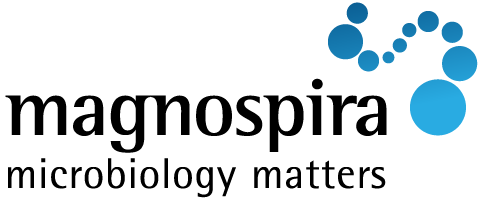A new look at us humans
Humans are made up of countless bacteria. It is estimated that there are around 50 trillion cells. In contrast, we “only” have around 30 trillion body cells. That’s quite a lot. But without these microbes, our microbiota, we would not be able to survive.
For a long time, it was thought that the human organism consisted only of body cells and that microorganisms were either hostile invaders or harmless intestinal bacteria. Only in the last 20 years has the importance of bacteria for the human organism become apparent: the term microbiome was born.
For a long time it had been thought that the human organism consists only of body cells and that microorganisms are either enemy invaders or harmless intestinal bacteria. Only in the last 20 years the importance of bacteria for the human organism became obvious: the term microbiome emerged.
The microbiome
In science there is a sometimes a debate about what the term microbiome should be used for. The proposal to use microbiome for the totality of all genes and to call the totality of all microbes microbiota is popular. Ultimately, however, it is only an academic discussion. Generally, microbiome is understood as a term for all bacteria found in and on our bodies.
But why is it relevant at all? Why is it important to be concerned with the bacteria in our body, our microbiota? Why is it necessary to know that this does not only consist of intestinal bacteria?
Why are bacteria essential for us?
From our own experience, we know that most people know two main things about bacteria:
- The intestinal flora is necessary for good digestion
- There are also pathogenic bacteria, so-called pathogens
This is a shame, because bacteria are far more important than most people realize. They influence to a great extent not only our digestion in the intestine, but are essential for very many metabolic processes. But that’s not all: our microbiota also has a direct effect on our psyche and is thus responsible for whether we are “in a good mood” or grumpy, depressed or even suffering from dementia. The bacteria thus play an elementary role in our health and our lives.
We would not be able to survive on this planet without these little residents. They are therefore not “tolerated co-inhabitants” on our body or only tiny workers for our body’s own sewage treatment plant, the intestine, but a part of us. The bacteria are us!
The bacteria are an essential part of us.
This is a concept that the vast majority of us still have to come to accept: that the small, lively cells are not something disgusting, but together with the body’s cells form the human being. And it goes even further: in the course of evolution, bacteria have also penetrated into our body cells and form the mitochondria in them, which are essential for our energy supply.
Most bacteria in our bodies are between 1 and 3 µm (micrometers = millionths of a meter) in size. If all the bacteria in our body, with an average size of 2 µm, were strung together like pearls on a string, this string would be 200,000 km long. That is half the distance to the moon or five times the circumference of the earth.

Adobe Stock / nobeastsofierce – stock.adobe.com
A change of perspective is necessary.
Yet despite this knowledge, most people are startled when they see a swab of our skin under a microscope and ask, “What’s that swarming on me?” This is a false statement: actually, it should be, “Look at me moving on the swab.”
But this requires a change of perspective that is not (yet) anchored in people’s minds.
The research of the last few decades has produced great things. Not only do we now know much more about the function of microorganisms and the microbiota, but we are also gradually learning how certain diseases and infections are caused because some bacteria can no longer multiply at the necessary rate. This is also a paradigm shift: until now, it was thought that diseases were caused by the PRESENCE of certain pathogens. Now we are learning that many diseases are caused to break out by the ABSENCE of certain types of bacteria. This is a quantum leap in our understanding of microbiology: we must learn not how to remove bacteria by antibiotics and other biocides, but how to promote the growth of the good bacterial species. The focus is no longer on elimination but on growth support. Commercial probiotics that have emerged from current research on these issues are moving in this direction, primarily supporting gut bacteria.
Cause – not symptoms!
But what is true for conventional medicine is also true here: We must not rely on drugs and probiotics. It is a mistake to demand a special pharmaceutical substance for every illness. Just as it would be wrong to rely only on the power of germs artificially supplied to the organism via commercial probiotics. Instead, we must learn how to stay healthy naturally and prevent destruction of our natural microbiological flora. Therefore, the same applies here: Do not cure the symptoms but address the cause.
A real chance!
But precisely in this lies the tremendous opportunity of a new understanding of the importance of bacteria for humans: We can determine the number and composition of our microbiota quite significantly through our lifestyle. This gives us the opportunity to work on our health in a self-determined way and to remain healthy and productive up to old age without antibiotics and without serious illnesses. (JS)
Header: Adobe Stock / anttoniart – stock.adobe.com; Adobe Stock / GAGO IMAGES – stock.adobe.com



